Abstract
Six rats lever pressed for food on concurrent fixed-ratio schedules, in a two-compartment chamber. In one compartment, mixed diet pellets were delivered on fixed-ratio schedules of 1, 6, 11, and 16; in the other, either no food was delivered, or sucrose or mixed diet pellets were delivered on fixed-ratio 8. The number of pellets obtained in the first compartment declined as a function of fixed-ratio size in that compartment in all three conditions, but the decline was greatest overall with mixed diet pellets concurrently available in the other compartment, and least with no food concurrently available. The result is discussed in terms of economic demand theory, and is consistent with the prediction that elasticity of demand for a commodity (defined in operant terms as the ratio of the proportionate change in number of reinforcements per session to the proportionate change in fixed-ratio size) is greater the more substitutable for that commodity are any concurrently available commodities.
Keywords: demand function, substitution effect, concurrent schedules, quantitatively different reinforcers, fixed ratio, postreinforcement pause, behavioral contrast, lever press, rats
Full text
PDF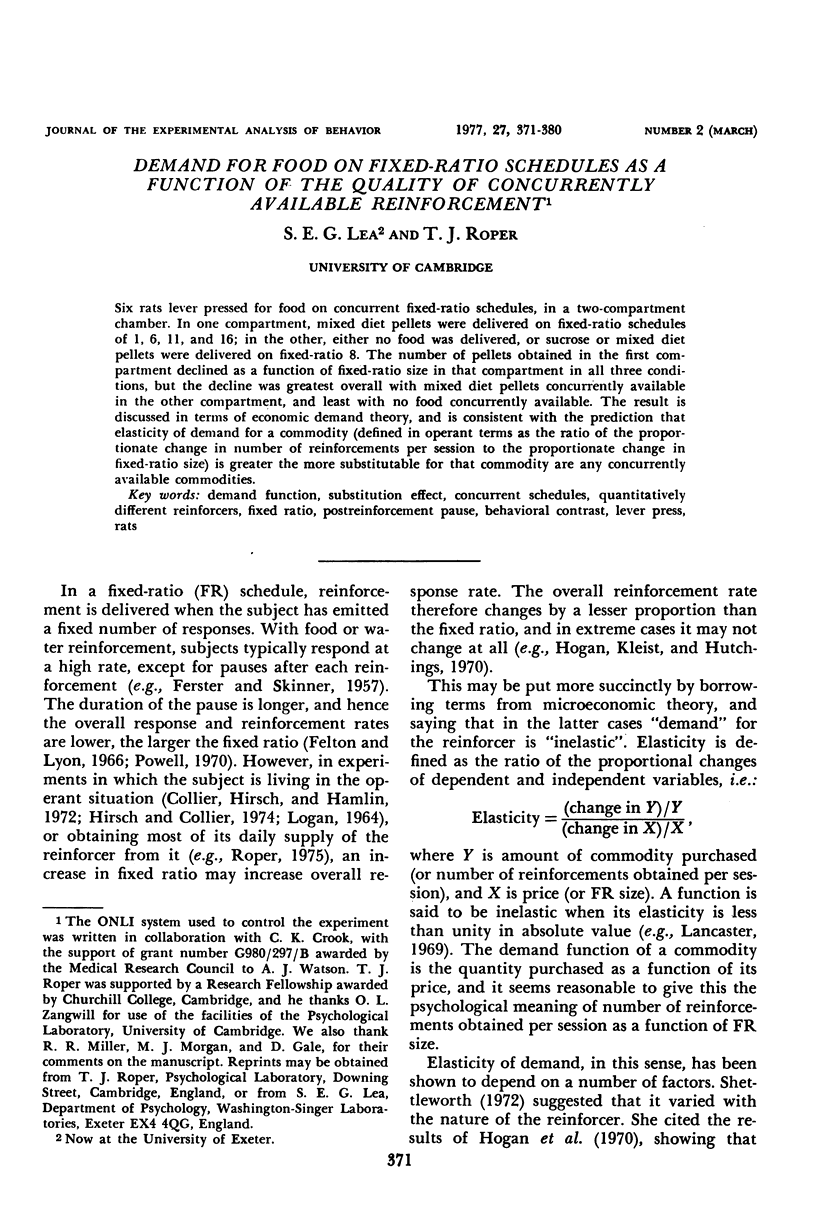
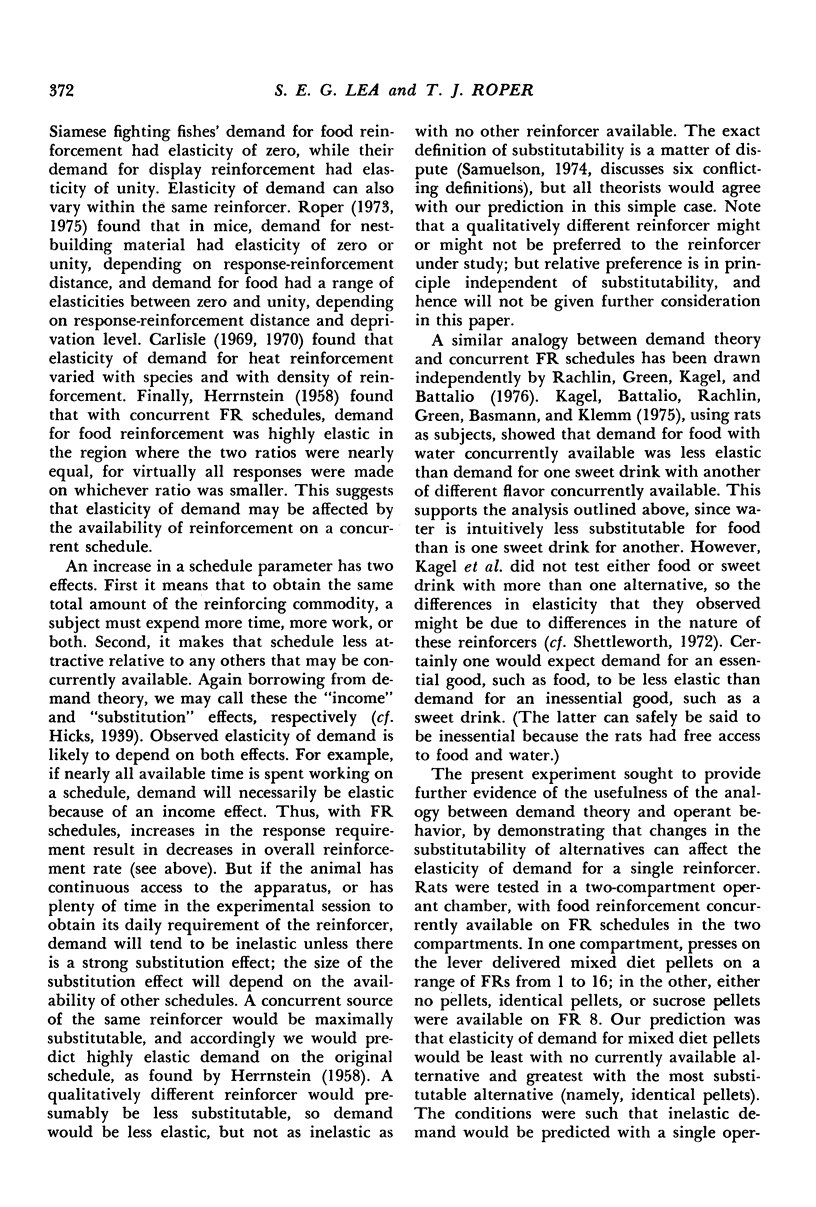
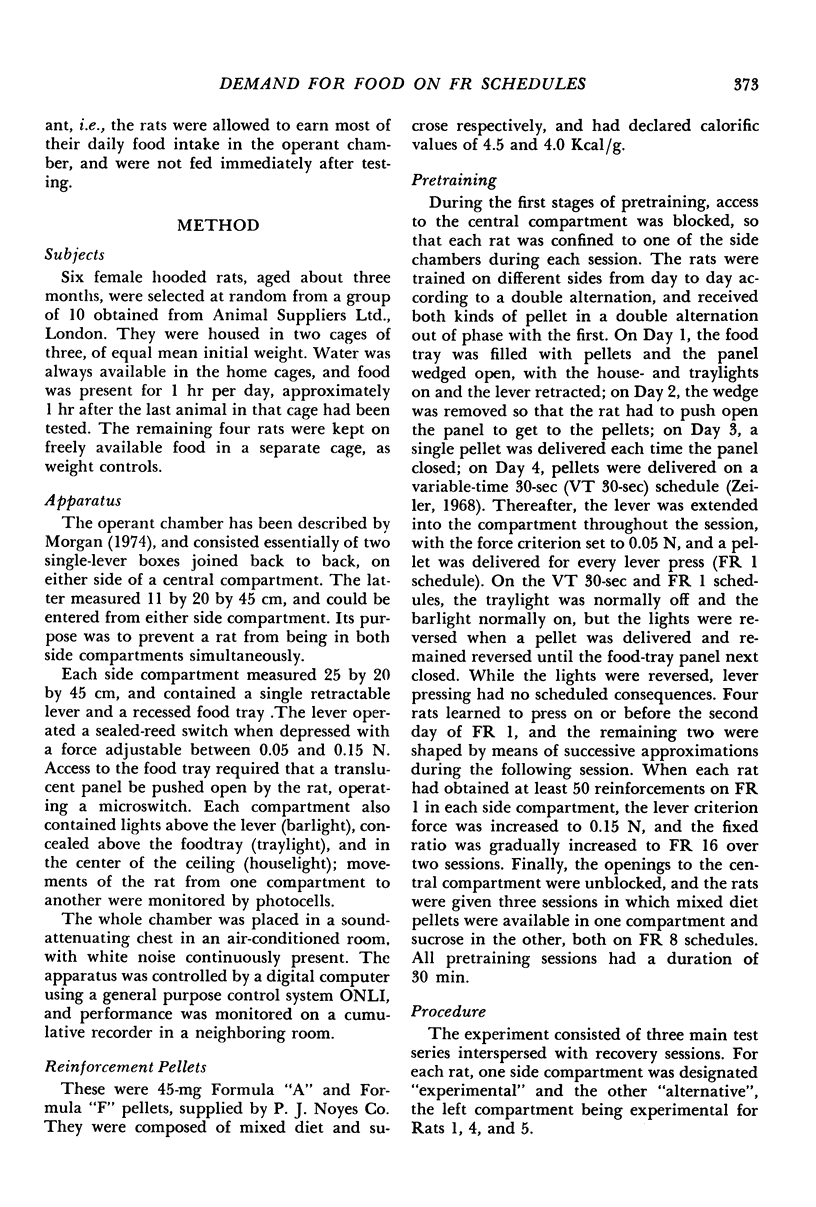
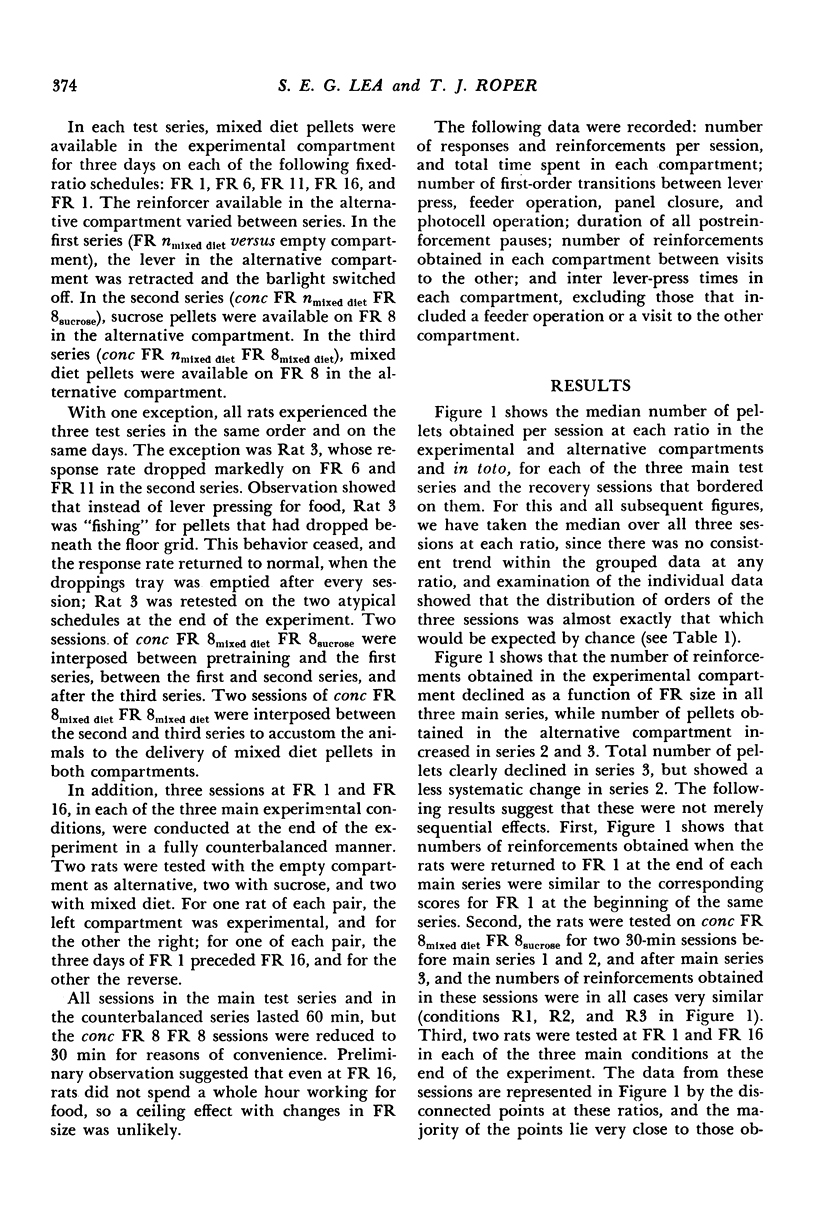
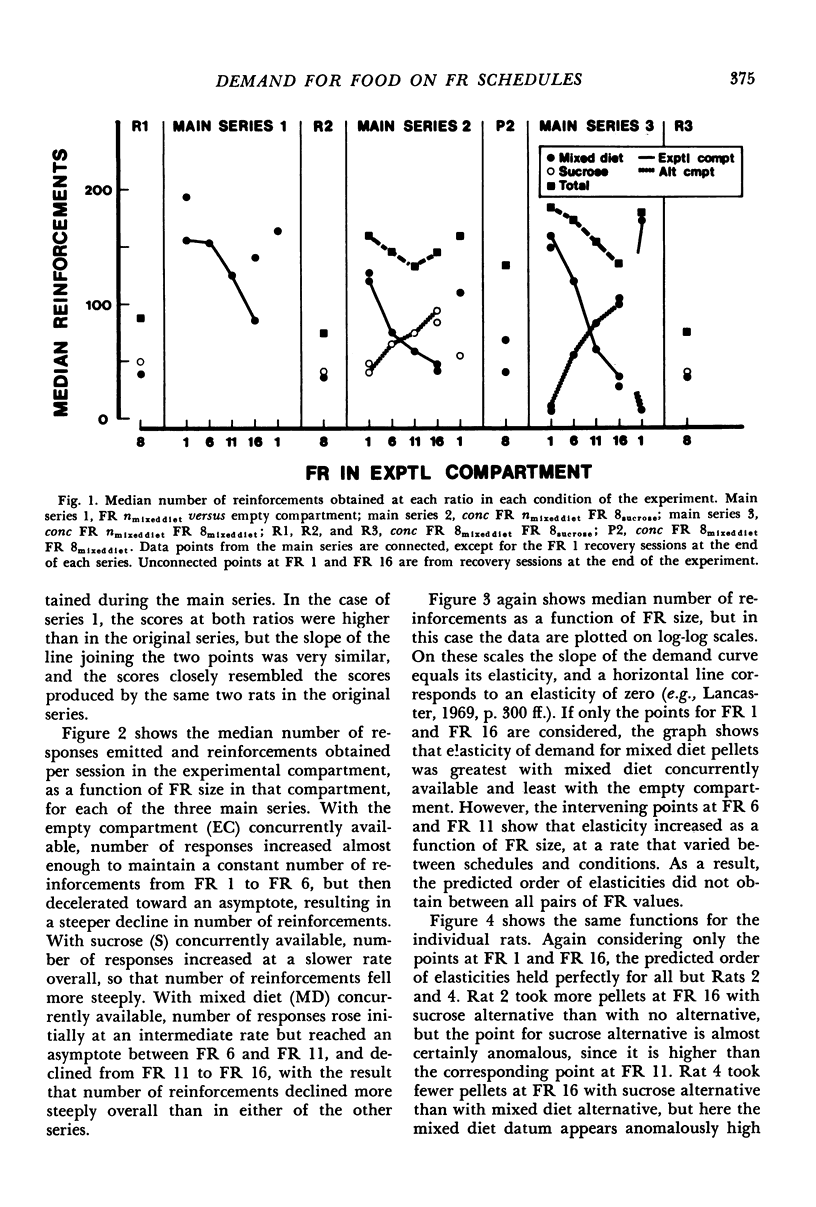
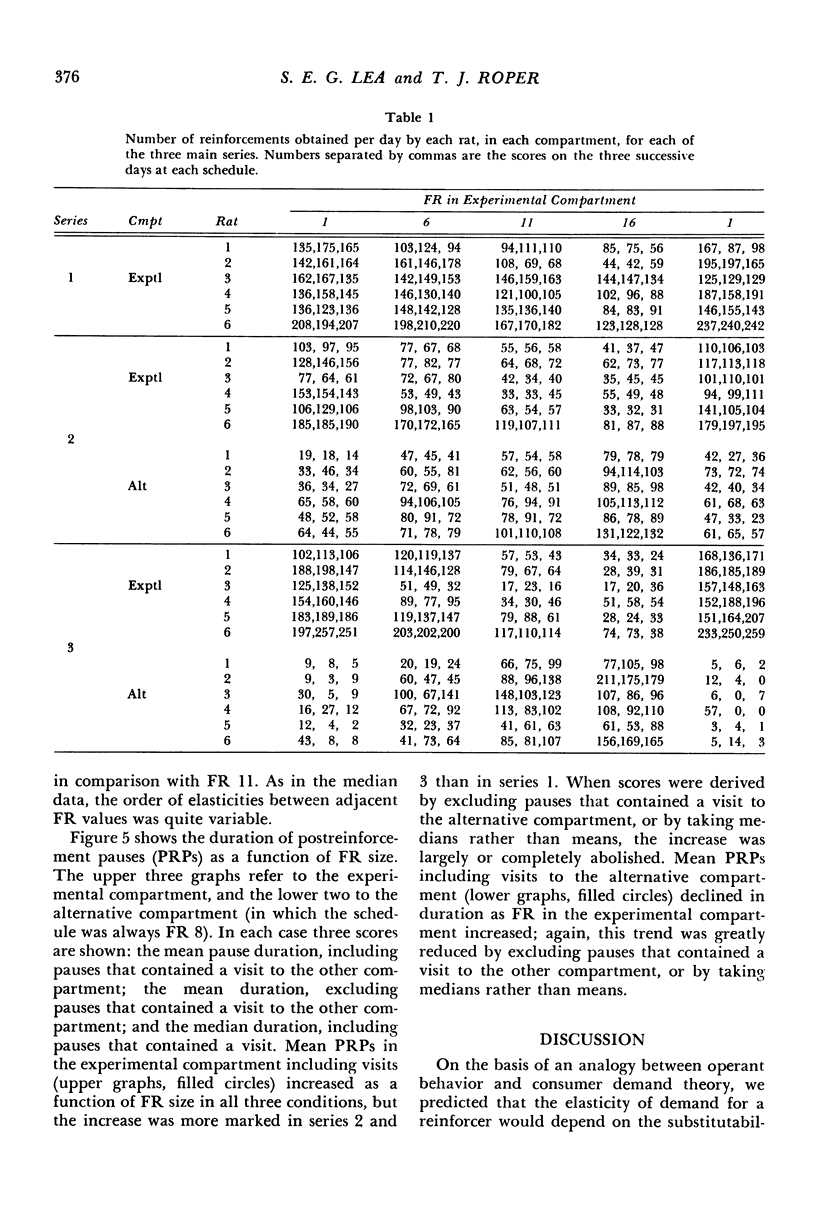
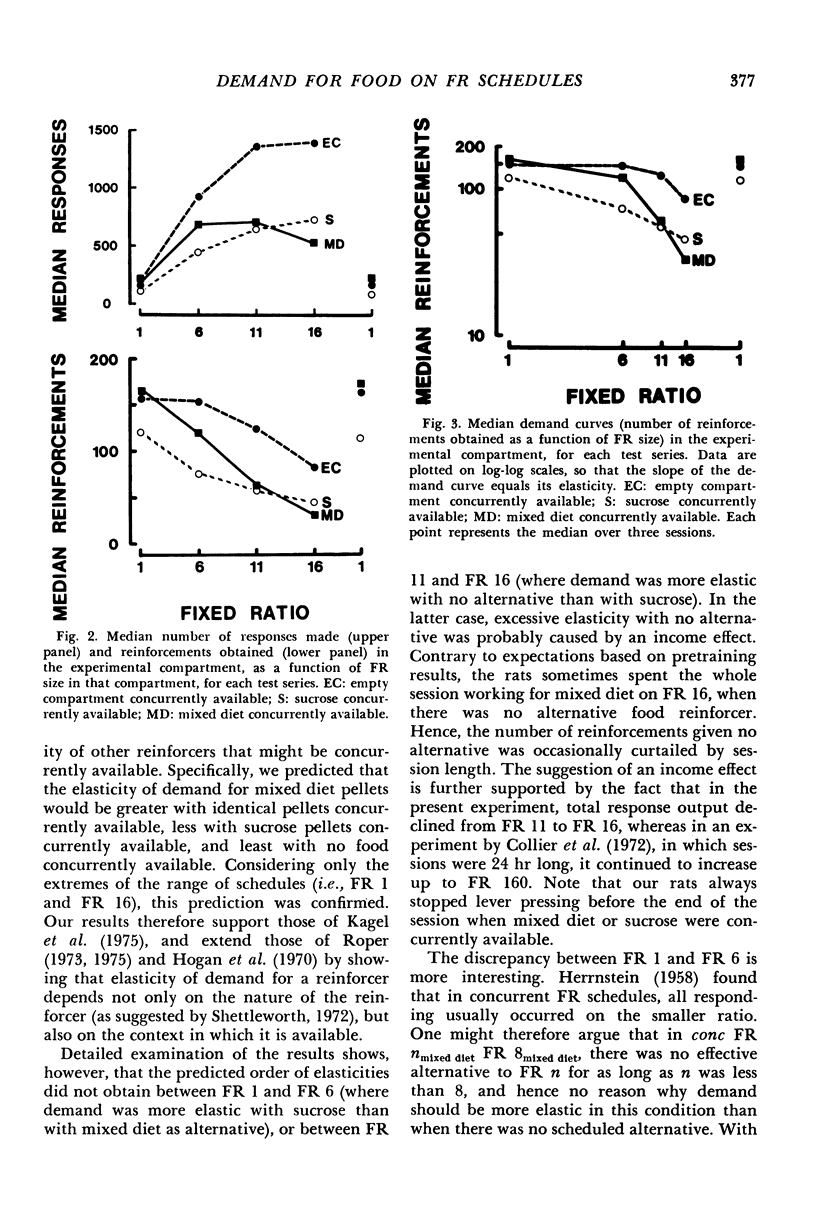
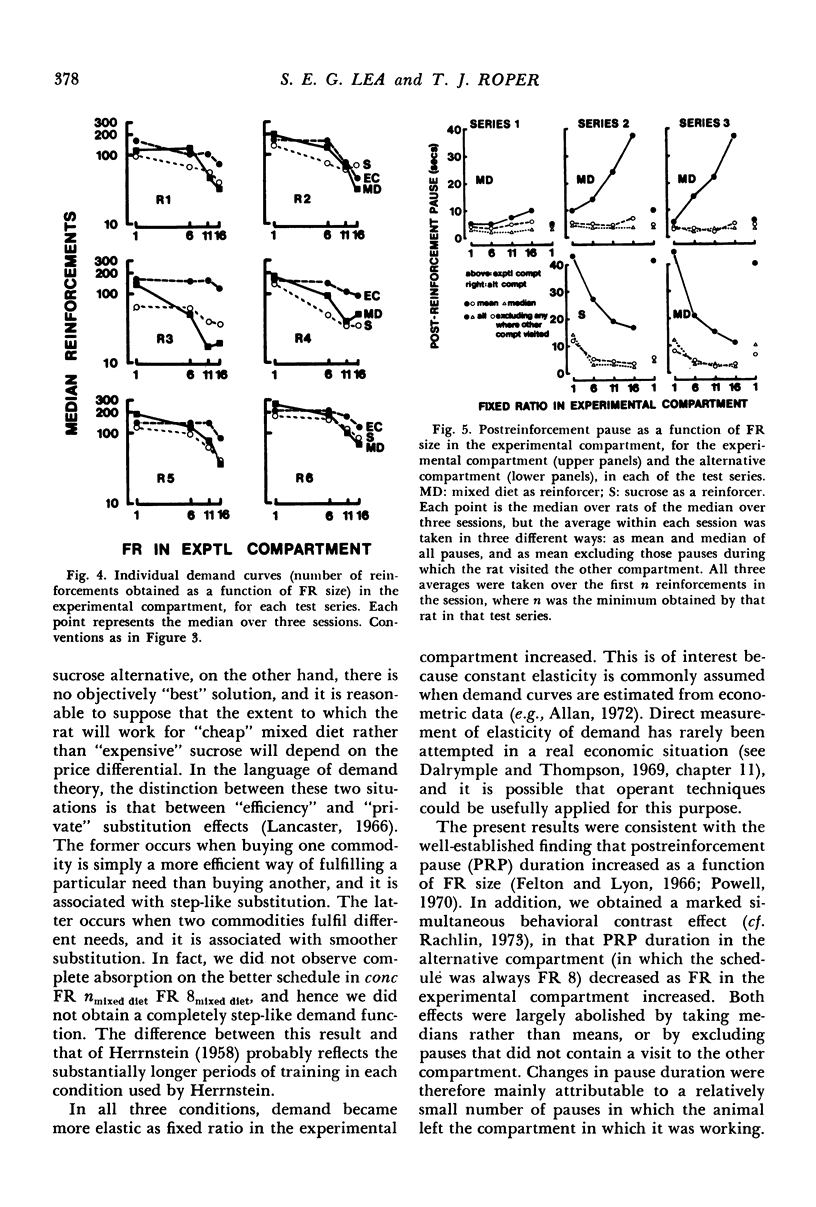
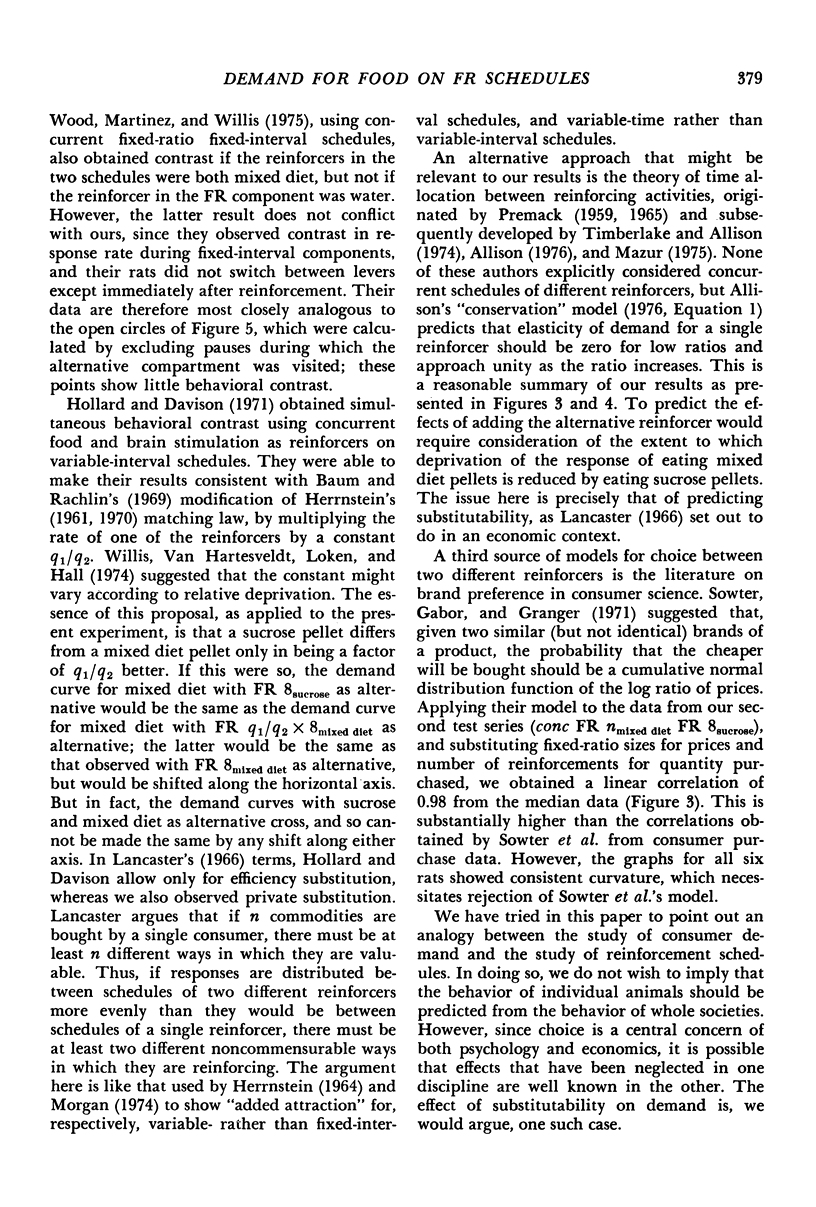
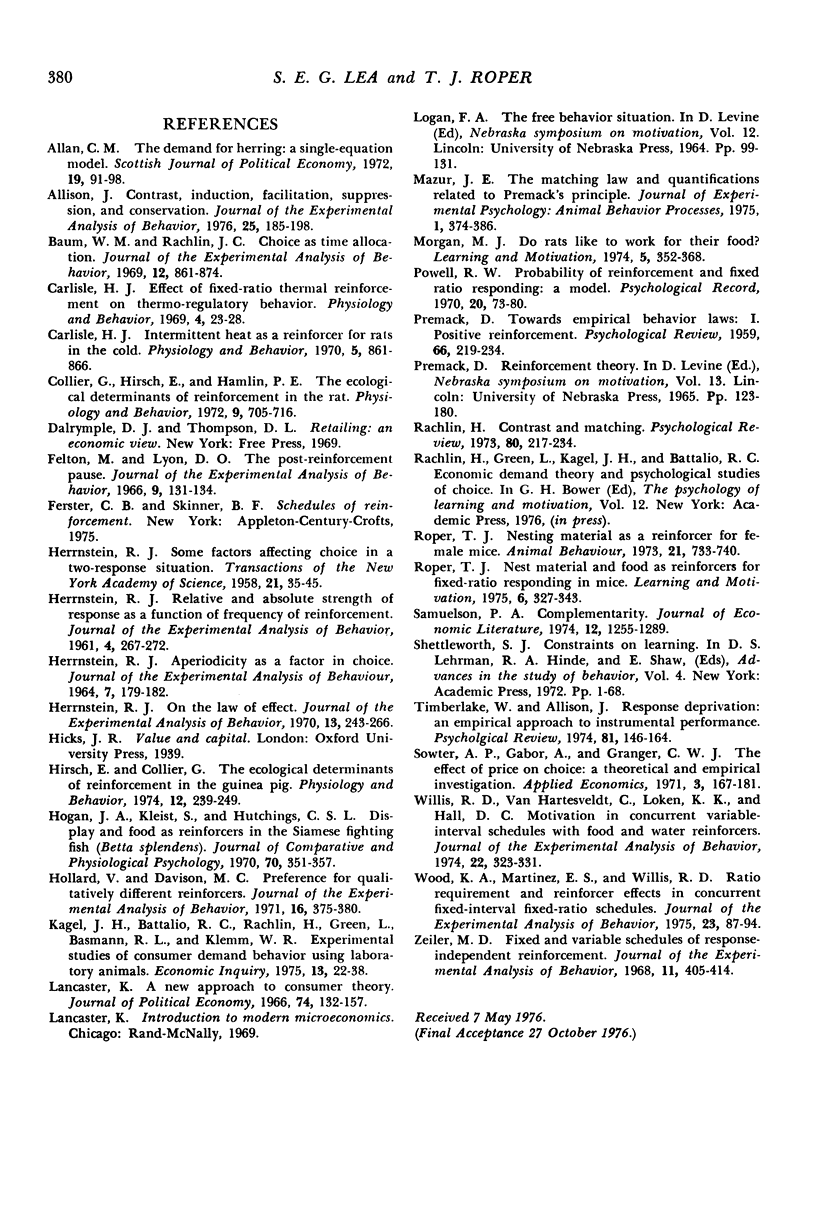
Selected References
These references are in PubMed. This may not be the complete list of references from this article.
- Allison J. Contrast, induction, facilitation, suppression, and conservation. J Exp Anal Behav. 1976 Mar;25(2):185–198. doi: 10.1901/jeab.1976.25-185. [DOI] [PMC free article] [PubMed] [Google Scholar]
- Baum W. M., Rachlin H. C. Choice as time allocation. J Exp Anal Behav. 1969 Nov;12(6):861–874. doi: 10.1901/jeab.1969.12-861. [DOI] [PMC free article] [PubMed] [Google Scholar]
- Carlisle H. J. Intermittent heat as a reinforcer for rats in the cold. Physiol Behav. 1970 Aug;5(8):861–866. doi: 10.1016/0031-9384(70)90172-1. [DOI] [PubMed] [Google Scholar]
- Collier G., Hirsch E., Hamlin P. H. The ecological determinants of reinforcement in the rat. Physiol Behav. 1972 Nov-Dec;9(5):705–716. doi: 10.1016/0031-9384(72)90038-8. [DOI] [PubMed] [Google Scholar]
- Felton M., Lyon D. O. The post-reinforcement pause. J Exp Anal Behav. 1966 Mar;9(2):131–134. doi: 10.1901/jeab.1966.9-131. [DOI] [PMC free article] [PubMed] [Google Scholar]
- HERRNSTEIN R. J. APERIODICITY AS A FACTOR IN CHOICE. J Exp Anal Behav. 1964 Mar;7:179–182. doi: 10.1901/jeab.1964.7-179. [DOI] [PMC free article] [PubMed] [Google Scholar]
- HERRNSTEIN R. J. Relative and absolute strength of response as a function of frequency of reinforcement. J Exp Anal Behav. 1961 Jul;4:267–272. doi: 10.1901/jeab.1961.4-267. [DOI] [PMC free article] [PubMed] [Google Scholar]
- Herrnstein R. J. On the law of effect. J Exp Anal Behav. 1970 Mar;13(2):243–266. doi: 10.1901/jeab.1970.13-243. [DOI] [PMC free article] [PubMed] [Google Scholar]
- Hirsch E., Collier G. Ecological determinants of reinforcement in the guinea pig. Physiol Behav. 1974 Feb;12(2):239–249. doi: 10.1016/0031-9384(74)90178-4. [DOI] [PubMed] [Google Scholar]
- Hollard V., Davison M. C. Preference for qualitatively different reinforcers. J Exp Anal Behav. 1971 Nov;16(3):375–380. doi: 10.1901/jeab.1971.16-375. [DOI] [PMC free article] [PubMed] [Google Scholar]
- PREMACK D. Toward empirical behavior laws. I. positive reinforcement. Psychol Rev. 1959 Jul;66(4):219–233. doi: 10.1037/h0040891. [DOI] [PubMed] [Google Scholar]
- Willis R. D., Van Hartesveldt C., Loken K. K., Hall D. C. Motivation in concurrent variable-interval schedules with food and water reinforcers. J Exp Anal Behav. 1974 Sep;22(2):323–331. doi: 10.1901/jeab.1974.22-323. [DOI] [PMC free article] [PubMed] [Google Scholar]
- Wood K. A., Martinez E. S., Willis R. D. Ratio requirement and reinforcer effects in concurrent fixed-interval fixed-ratio schedules. J Exp Anal Behav. 1975 Jan;23(1):87–94. doi: 10.1901/jeab.1975.23-87. [DOI] [PMC free article] [PubMed] [Google Scholar]
- Zeiler M. D. Fixed and variable schedules of response-independent reinforcement. J Exp Anal Behav. 1968 Jul;11(4):405–414. doi: 10.1901/jeab.1968.11-405. [DOI] [PMC free article] [PubMed] [Google Scholar]


